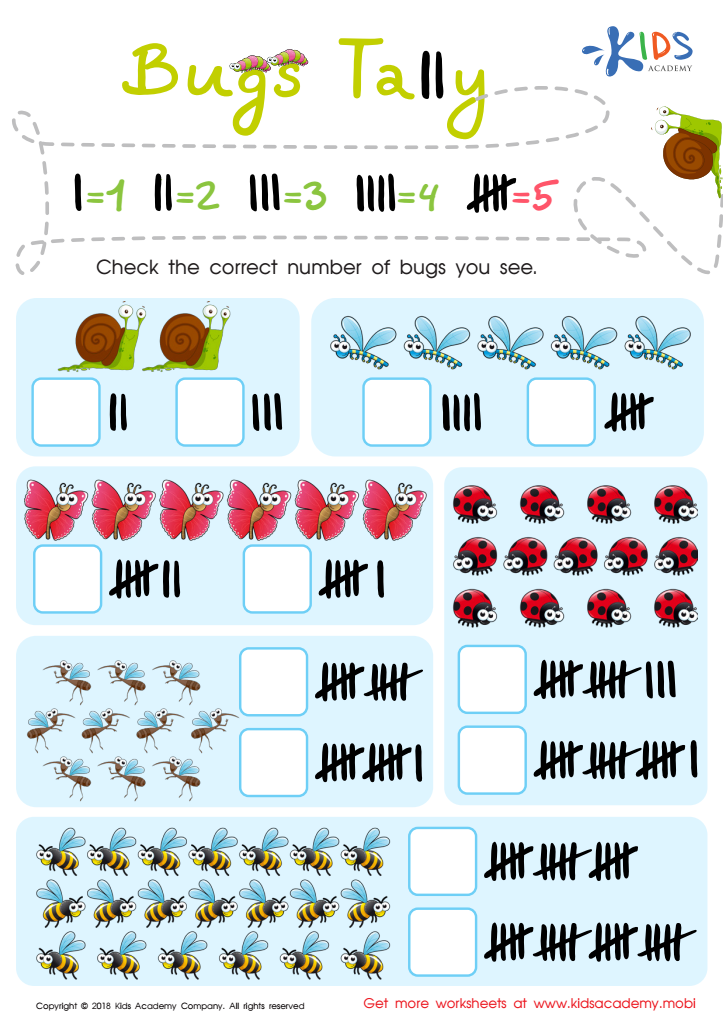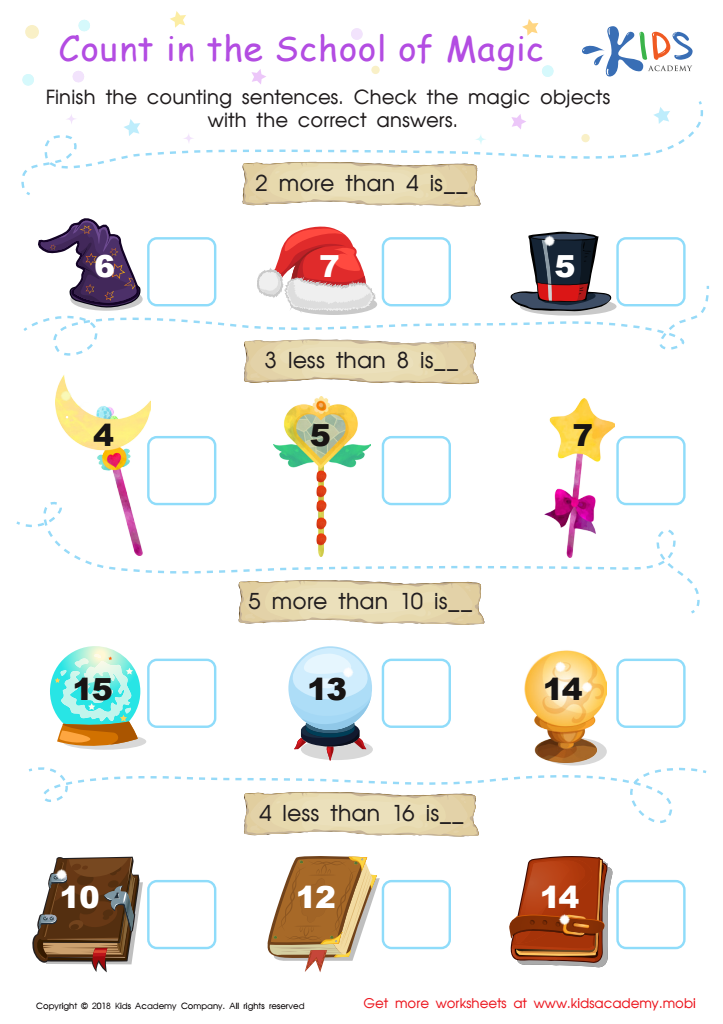Observational skills Easy Numbers Worksheets for Ages 7-9
3 filtered results
-
From - To
Enhance your child's observational skills with our engaging Easy Numbers Worksheets designed specifically for ages 7-9. These worksheets provide captivating exercises that encourage young learners to observe, compare, and analyze various numerical concepts. Through fun and interactive activities, children will develop essential skills in identifying patterns, understanding number relationships, and honing their critical thinking abilities. Each worksheet is tailored to stimulate curiosity and foster a love for learning in a playful environment. Perfect for home or classroom use, these resources will empower your child to become more confident in math while refining their observational prowess. Start your adventure in numbers today!


Bugs Tally Worksheet


Count in the School of Magic Worksheet


Party Arrays Worksheet
Observational skills play a pivotal role in a child's cognitive and social development, especially for students aged 7-9. At this stage, children are naturally curious and eager to explore their environments, making it an ideal time to hone these skills. Parents and teachers should prioritize observational skills, particularly in early math concepts like "Easy Numbers," because they lay the foundation for critical thinking and problem-solving abilities.
When children engage in observational activities, they learn to notice patterns, relationships, and differences among numbers and objects, enhancing their mathematical understanding. This skill encourages them to ask questions, make predictions, and draw conclusions—fundamental aspects of mathematics and science. Additionally, observational skills foster attention to detail, which is not only vital for academic success but also for daily activities.
By nurturing these skills, parents and teachers encourage a love for learning and exploration. Children who develop strong observational skills are better equipped to engage in collaborative activities and communicate effectively with peers and adults. As a result, focusing on observational skills during these formative years can lead to enhanced academic outcomes, a stronger sense of curiosity, and improved social interactions, ensuring each child has the best possible foundation for future learning.
 Assign to My Students
Assign to My Students






.jpg)









